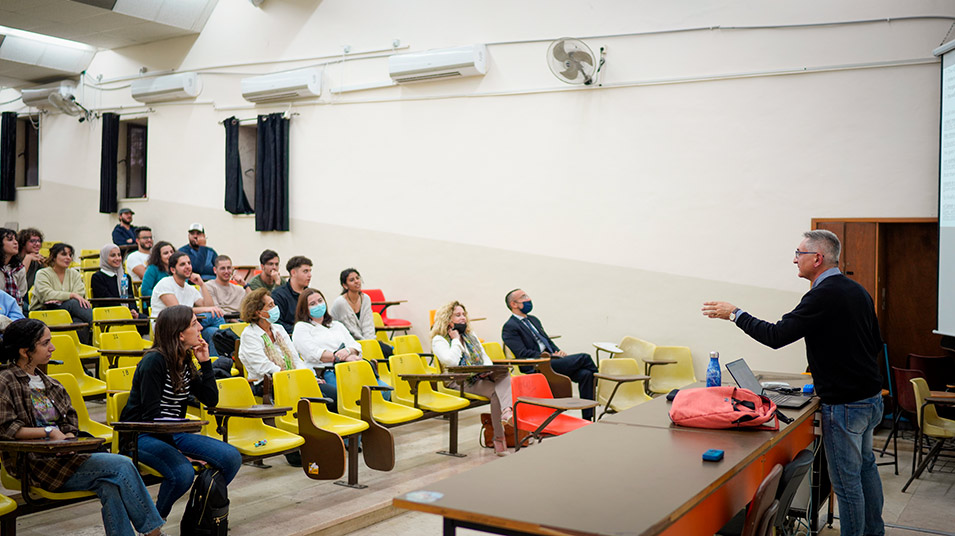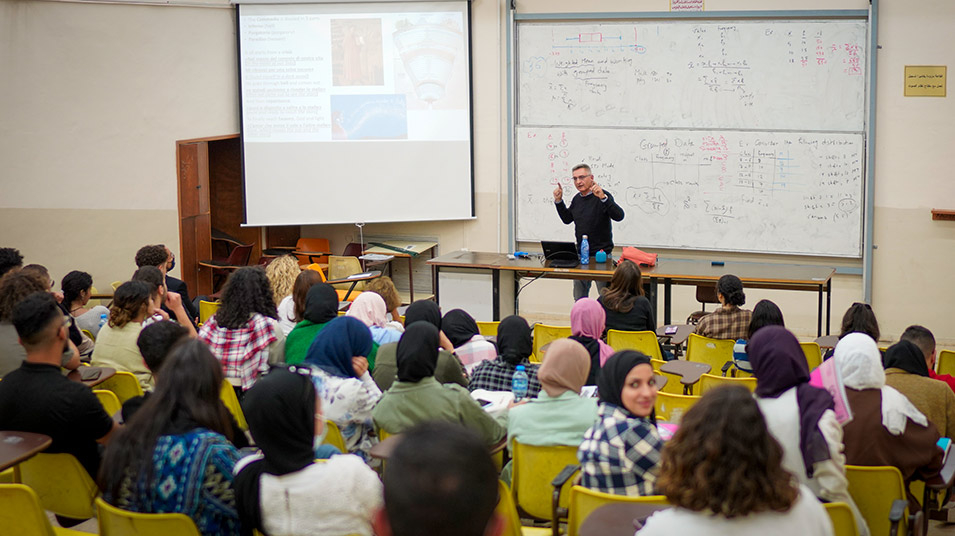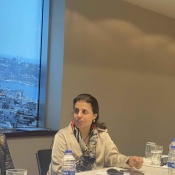Roberto Cirelli, Italian-language instructor, dives into Dante’s literature in Italian language week lecture
As part of the 21st Week of the Italian Language, Birzeit University’s Italian language instructor Roberto Cirelli celebrated the life and works of prominent poet and author Dante Alighieri, in a lecture held on October 26, 2021.
The Week of the Italian Language is an international event that seeks to promote Italian language and culture. It is supported by the Italian Ministry of Foreign Affairs and International Cooperation and the Accademia della Crusa.
Attending the lecture were Giuseppe Fedele, the Italian consul in Jerusalem; Ruba Khalaf, chair of the Department of Languages and Translation; and a number of faculty members and students.
In the lecture, Cirelli gave a brief overview of the history of Italy, the evolution of its language, and its geography. He noted that Dante, whose life and achievements serve as the main theme for the 21st Week of the Italian Language, has helped give Italy a distinct intellectual and cultural context through his variegated works. “This year’s theme, ‘Dante the Italian,’ is not only meant to celebrate the greatest Italian poet, but also his cultural contributions to the founding of an Italian state even before it was created,” he explained.
Discussing Dante’s mark on Italian culture and language, Cirelli said that the famed author, born in Florence in 1265, wrote poems and essays in Italian vernacular instead of Latin, which was the norm at the time, planting the first roots of Italian as the language known and used today. “Dante created a masterpiece for Italy. He gave metaphors of life and described the path of all human beings, from lies to truth, from darkness to light and from despair to hope,” Cirelli noted.
Cirelli also compared Dante with his contemporaries as well as later poets, such as the renowned late Palestinian poet Mahmoud Darwish. “There are many similarities between the two as they both lived the struggle of being in exile,” he explained. Exile to Dante, he added, gave him time to write, and his suffering gave him a motive to be creative. “However, the difference between Dante and Darwish is that Dante was among the first to help establish the Italian language, while Darwish used the extant language of the Arab region,” he continued.
Dante, according to Cirelli, founded ways through his literature to promote the Italian language, so much so that his writings became the basis for a national language, replacing Latin.








